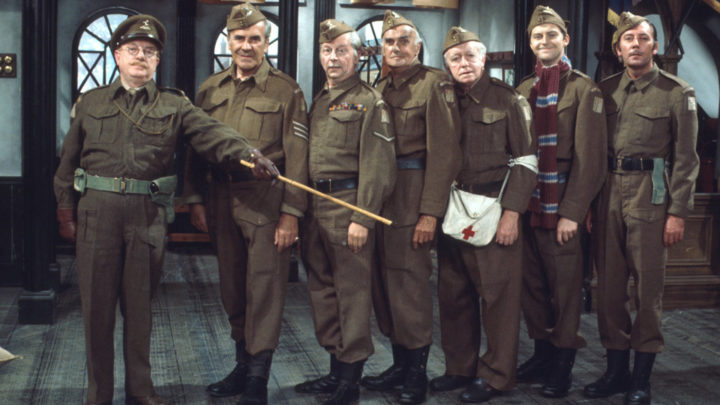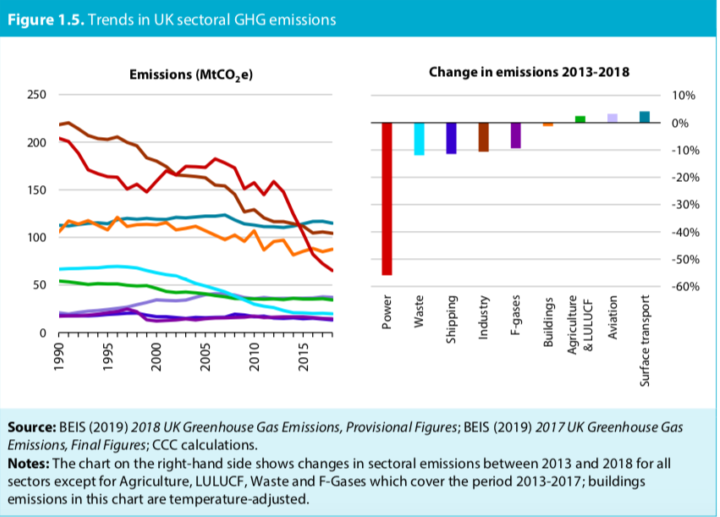COP 26: Britain's, or Comedy's, Finest Hour?
Comparisons between the UK's climate action record and comedy hit Dad's Army are far from complimentary.
By Sepi Golzari-Munro
Share
Last updated:
For many Brits, the words 'Dad’s Army' conjure images of a rag-tag crew of unfit, out of breath and overconfident incompetents, unequal to the grave task of defending the nation from Mr Hitler. “Comedy’s finest hour” it may have been, but comparisons with this hit TV show are far from complimentary.
Yet that is how the Chair of the Committee on Climate Change, Lord Deben, has described the Government’s efforts to tackle climate change in comments following publication of the Committee’s 2019 Progress Report to Parliament.

That report found “a substantial gap between current plans and future requirements and an even greater shortfall in action.” This conclusion applied both to mitigation – efforts to curb greenhouse gas emissions – and to adaptation – preparing for a future with some now unavoidable climate impacts.
Of the 25 critical policies to get emissions reduction back on track, identified by the Committee last year for implementation in the 12 months to July 2019, only one has been delivered. But – and here readers may find me too charitable – is it really any wonder?
Of these 25, only eight were wholly within direct control of the Department for Business, Energy and Industrial Strategy – the lead department for climate mitigation. As for the rest, five were under the auspices of the Department for Transport, six under the Ministry of Housing, Communities and Local Government, six under the Department for Environment, Food and Rural Affairs, and all subject to HM Treasury’s jealous gaze.
So, again, is it really any wonder that these were not delivered? Who was meant to command these huffing, puffing, gasping and guzzling troops to ‘stand to attention!’ let alone ‘advance!’?
No hive mind
Anyone with more than a passing knowledge of 'the Government' will know that, while the phrase evokes images of a monolithic, seamless and coherent entity, the reality is quite the opposite. It is instead a busy hive of different and competing activities with more and less powerful actors at Official and Ministerial level, all trying to make their mark.

How can a single Department, in particular one that falls short of the four Great Offices of State, be expected to persuade, bully, coax or cajole the others into line? This type of activity is most effectively achieved through Cabinet chaired, naturally, by the Prime Minister or a particularly powerful Secretary of State.
And while the Prime Minister may be termed ‘first amongst equals’, personality tends to trump protocol in politics, even amongst equals. We’ve already seen the extraordinary turn around in DEFRA’s fortunes under Michael Gove. Policy agenda aside, most interesting is the transformation of what was by all accounts a backwater where most civil servants dreaded being posted into now one of the most energetic, exciting and influential departments in all of Government.
“We cannot be radical enough in tackling the climate crisis” said Sir David Attenborough to a group of MPs this week. Would setting up a Climate Cabinet as suggested by the CCC, led by a powerful figure such as Gove, or perhaps by the Chancellor or even the Prime Minister, be effective enough to get the UK’s domestic action back on track?
By itself it might not be sufficient, but it might well be necessary to ensure that Departments which have gone 'climate AWOL' are meaningfully brought to the table and held accountable for delivering on their work to standard, to time and to cost.
On the global screen
This becomes all the more pressing over the next 18 months, when we will likely see the UK surge towards hosting the most important global climate summit since Paris in 2015. COP26 is not only where countries will be expected to ramp up their climate action, but also the UK’s first opportunity to demonstrate global leadership credentials post-Brexit and provide a platform for UK PLC to showcase the British science, industries and technologies that a decarbonised world is going to need.
Given the short timescale - and the presence of other important political issues - one could argue that nothing short of 'military precision' to December 2020 will do, with an effective and accountable Cabinet model that can sharpen up the Home Guard into elite troops and deliver this win. Credibility on the international stage, to paraphrase the CCC, rests on real action on the Home Front.
While our next Prime Minister, whoever he will be, will no doubt be fond of a good gag, he may be wise to retire the ill-disciplined Dad’s Army and ensure that 2020 isn’t vintage comedy, but rather Britain’s finest hour.
Share